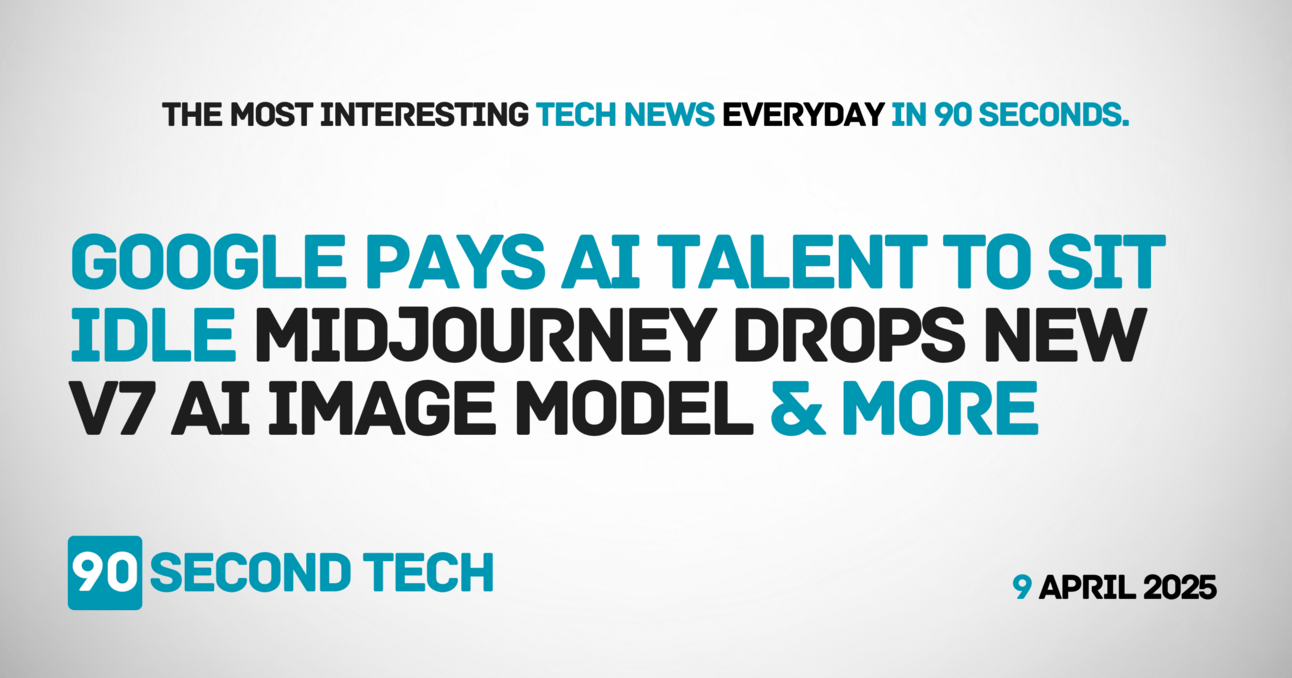
Your essential tech update in 90 seconds:
CONSUMER TECH
Trump is threatening Taiwan Semiconductor with "up to 100%" taxes if they don't build promised US plants, dismissing Biden's $6.6B subsidy as unnecessary despite TSMC's $100B commitment.
Nvidia may dodge the recent China tariffs as 60% of their AI datacenter servers qualify for USMCA protection through Mexican manufacturing.
ARTIFICIAL INTELLIGENCE
Midjourney just dropped its first new AI image model in nearly a year, and the wait was worth it. V7 brings some serious upgrades to the table that'll have both casual users and pros taking notice.
The new model is significantly smarter at translating your prompts into exactly what you're imagining, with higher-quality outputs that dodge many of those AI giveaways we've all learned to spot.
What's New:
Personalisation by default - First Midjourney model that learns your aesthetic preferences automatically
Enhanced prompt understanding - Better at interpreting what you actually want
Superior image quality - Improved textures and details
New Draft Mode - Generate rough concepts in seconds at lower cost
Two speed tiers - Choose between premium "Turbo" for speed or budget-friendly "Relax" mode
Over at Google, DeepMind is reportedly paying some UK staff their full salaries to do nothing for up to a year rather than join competitors. These "aggressive" noncompete agreements keep AI talent sidelined, with Business Insider noting some researchers feel disconnected from rapid industry progress.
FUTURE TECH
The UK government is quietly building a "Minority Report” prediction system for murders. Originally called the "homicide prediction project" (points for honesty?), they've since rebranded to the more innocuous "sharing data to improve risk assessment." Classic government move.
How? Algorithms are crunching through massive personal datasets to flag individuals they believe are most likely to commit murder in the future. The MOJ insists this will boost public safety, while privacy advocates are calling it exactly what it is — "chilling and dystopian."
90 Second Tech
